Posts
now browsing by category
Morphology of Images
What parts of the image do you see?
I see outer space, a naked woman, a star erupting, and a skeletal man smoking.
How do these parts interact with each other?
When I look at these images together I think it could possibly represent new life. In the first image it seems to me that the woman is in pain, which could possibly have to do with child birth. In the second image, I think that the bursting star against the earth represents the beginning of new life on earth. In the third image, a small child sleeps inside a skeletal head, which could refer to the innocence every child is born with before the influence of toxicity which is human life form.
Are these images telling a story?
Yes, I believe that each image tells the story of a beginning of new life. A woman bares a child, that child makes a permanent impact on the earth (represented by the exploding star) and that new life is within all human existence.
Which parts of this image are characters in the story?
I believe that the woman is the main character in the story, because she creates new life on earth. The small child in the last image represents new life and the characteristics which make new life pure.
Which parts of this image are crucial for the setting of the story ?
The parts I see which are crucial for the setting of the story, is the way that the woman is laying. To me, it looks like she is evoking a feeling of pain and bliss. This pain represents the physical pain of new life, and the bliss represents the joy of creation.
Which parts of this images are crucial for the plot?
The idea of the story is about the creation of new life. I think that the exploding star represents the moment new life arrives on earth which is what the entire story of images is based off of.
How do these parts interact?
The theme of new life interacts with the theme of outer space, in that with new life it can be changed in a small moment of life. Along with the small moment of emotion created by new life, the galaxy shows signs of new life as well.
What parts of this image are “root” or “stem” parts and which parts feel like “affixes”?
The parts of this image that feel like “root or “stem” parts, I think that the specific way the woman is laying is a root of the events which will soon occur; I believe that these events will be child birth and the formation of new life.
As far as the “stem” is concerned, to me it seems that the galaxy/milky way apparition that the woman is lying on come hand in hand with the root to form the affix.
In this image the affix is most likely the small stars which make up the galaxy in the middle image. If the image is blown up you can see small stars shooting from the large star, representing the different walks of life all new beings come from.
Of the affixes, can you say which are “inflectional” (they only exist to hold the grammar together) and which parts are “derivational” (they add some important information to the meaning, or change the kind of meaning of a given part)?
In the images I think that the only inflectional images are inside of the middle picture. I placed these images in this order for that specific reason. To me, the bursting star represents the woman’s child birth and the last picture of the small child inside the man’s head. The middle image serves as a means of communication between the woman and her child. For me the derivational images in the picture focus in on the last image. I really love this picture because I think that it makes the connection between new life and innocence, with ending life and toxicity. The fact that a small child is inside the head of a man smoking symbolizes the delicate balance of innocence and knowledge+experience.
By Julia McGonigal
Images from: Omni Magazine Reboot :http://theomnieffect.com/archive
The Morphology of Images
Take a look at the image “Minor Changes 50” by Todd Webb (all images by Todd Webb, take from Comics Workbook and Wall Drawing).
- What parts of the image do you see?
- How do those parts interact with each other?
- Is this image telling a story?
- Which parts of this image are characters in the story?
- Which parts of this image are crucial for the setting of the story ?
- Which parts of this images are crucial for the plot?
- How do these parts interact?
Now, look at Minor Changes 46.
- Does this new information change your interpretation of the morphology of Minor Changes 50?
- What do you know now that you didn’t know before?
- What parts of this image are “root” or “stem” parts and which parts feel like “affixes”? Why?
- Of the affixes, can you say which are “inflectional” (they only exist to hold the grammar together) and which parts are “derivational” (they add some important information to the meaning, or change the kind of meaning of a given part)?
Now look at” Minor Changes 63″–
- Did your opinion about the morphology of this image change?
Now look at the entire series of images in this group of “Minor Changes” (Minor Changes 39-63) and think about morphology.
- How does the visual morphology change?
- How does it stay the same?
One possible set of answers…
-doug
A Call To My Mother…
My phone call to a significant other was to my mom. It was interesting to notice little things i had never caught onto before. She has an accent since English was her second language. We spoke a lot about school and work and i realized those are our usual topics. I also realized she never used to get emotional, and with this call she was telling me that she missed me being home with her a lot. As we continued talking, i also realized that she bounced around speaking English and Spanish in the same sentences a lot. I also very oddly brought up the topic buckets and pails and i realized she does not say either. Instead she says the Spanish translation of it. When i called her she began with “how are you? como estas mija?”. She doesn’t use hella at all and says soda with an accent. All of the slang she used when she was younger was in Spanish. That turned into very cute and funny conversation. I then asked her to pronounce the listed words and she kept telling me that they were all the same words. I assumed this was because English was her second language. overall, i had a very good and interesting talk with my mom.
GenS_100 Calling a Relative
I called my relatives, and since they are British, their word choice and accent are different from those who were born and lived in America their whole lives.
I noticed they tend to use the word “pail” more than they use “bucket” even though they use both. When they answer the phone, they don’t say “What’s up?” or “What’s good?” Instead they’ll say “You alright?” That’s the way people in England also greet each other even when they aren’t on the phone. Usually they won’t say soda or pop, and they’ll say fizzy pop instead. They never use “hella,” but they did tell me about some interesting slang from England. My cousin told me when people are typing online, they will use “babes” a lot. Saying the words “crap” and “piss” in England is worse than saying them in America. When describing something that belongs to them, instead of using “my,” they will tend to use the word “me.” For example, when we were talking about school, my cousin said “I almost left me bag in the house.”
When my family in England pronounce “pool” and “pull,” and “feel” and “fill,” the words sound really different. When they say “bad” and “bat,” the words sound similar, but “bot” sounds different. “Caller” and “collar” sound pretty similar.
Through my visits to England and conversations on the phone with my relatives, I’ve noticed the word choice between Americans and the English can differ a lot.
-Meg Collier
Gen 100 Calling a Significant Figure
For this assignment I called my cousin who was born and raised in Los Angeles. I decided to call my cousin instead of my parents because my parents can not speak English so calling him would fit the assignment more. I don’t see my cousin very often because he’s very busy the only times I get to see him are at family gatherings. While talking to him on the phone I didn’t pick up on anything new or surprising about the way he speaks. We had a very casual conversation, we talked about college and dorm life and he gave me a lot of advice since he has already been through college and is now getting his masters at USC. He started of the conversation with a “What’s up?” and “What’ve you been up to?” in which I replied “nothing much”. Since he grew up in southern California he rarely uses the word “hella,” even during our conversation. During our conversation, I asked him a serious of questions and found out that he says soda and bucket instead of pop and pail which is not very surprising in California. Being a 23 year old male college student he knows quite a lot of slang such as “swag”, “sick”, “dope” but he rarely uses slangs that I use such as “totes”, “adorbs” and “ratchet.” However, like me he has never heard of the words dank and flame which I think sounds kind of funny and weird. The vowels in pool and pull, feel and fill sound totally different to me. I also pronounce words such as bad,bat and bot differently. However, the words collar and caller sound the same to me and I say them similarly too.
Gen s100: Calling home
I called my mom for this assignment. The way she talks is Spanglish. She uses broken English. During this call, I noticed that sometimes when she is speaking, she is using words in past tense rather than present tense. Her accent is a Spanish accent, it isn’t that deep. Since, my mom is from a different country her use of slang is not up to date. However, is understands slang when I use it. She knows “what’s up?” is a substitution for “how are you?’. Little things like that she understands, but not words like: ratchet or turned up. On how she speaks, I really didn’t find anything unique with the words she uses. She really only talks to me in Spanish and uses Spanish slang. However, when she does speak English she tries to pronounce her words more clearly.
A) She uses the word bucket.
B) When I called, she used the phrase “How are you?”
C) She says the word soda, when I asked her.
D) She doesn’t know what “hella” meant.
I really didn’t hear anything different in her English slang. However, with her Spanish slang there are some words that I probably never heard of and had to ask her.
a) The Pool/Pull, they sound different to me. Pool sounds like I an saying “oo” and Pull is more short and more deep, like I am saying “uh”.
b)The words Feel/Fill do not sound the same. The word “Feel” sound softer than “Fill”
c) The three words sound the same to me.
d) Caller/Collar sound the same or very similar.
Parents Back Then and Nowadays
I called my dad and he has a mild British accent that I don’t really notice, but everybody else does. He says:
- Both pail and bucket
- What’s up, what’s good, how’s it going and how are you
- Soda
And of course, he says… HELLA! (I’ve taught him well)
He also tries to say ratchet and all the slang words that my friends and I use to try and be hip, but to also bother us.
Some slang words that he claimed to have used but is still used back then are:
-Brilliant
-Bog…Toilet
-Fab…Fabulous
In London, many of the people who live in the East End speak with a Cockney accent (which is considered “ghetto”) but here’s some slang that many people from London used back then as well:
-Apples and pears…stairs
-Dog and bone…phone
-Whistle and flute … nice suit
a)Pool/pull sound similar but have a slight difference if you pronounce the vowels correctly.
b)Feel/fill sound similar but the double e has a longer pull on the word, the i cuts it short.
c)Bat/bad/bot all sound different.
d)Caller/collar sound exactly the same to me but if you know the spelling and context you know the difference.
Gen S-Calling Parents
I called my parents and they only said a few things that surprised me. They greeted me by asking, “How are you?” instead of “What’s up?” My dad also uses the word ‘pail’ instead of ‘bucket.’ Otherwise, their speech was normal.
Language discussion with mama bear
I called my mother after class and told her the my assignment. She’s the swedish one of the family and she gave me a few english slang words she used in the 80’s. In Sweden, when you say hello, usually you say “hej hej” or “hey hey”. When you say goodbye you say “hej hej”. It’s weird because when I lived in Sweden I remember saying goodbye and then turning my back, but then they would say “hej hej” and I would turn around confused. Funny stuff.


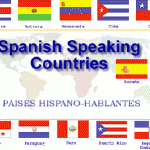
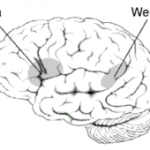


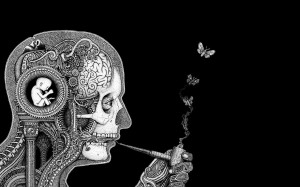
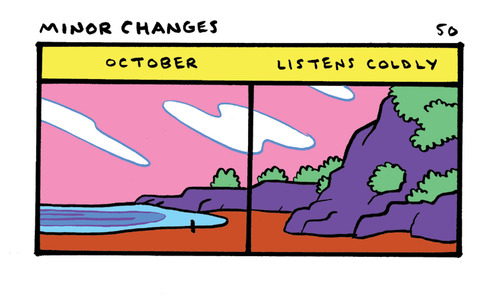
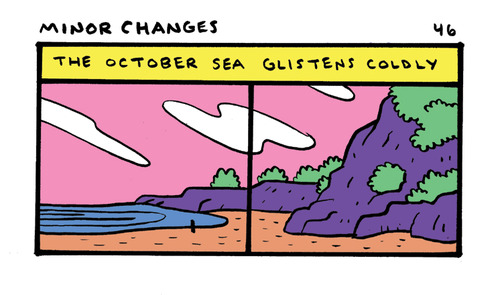
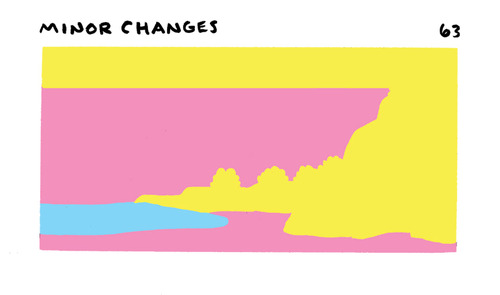
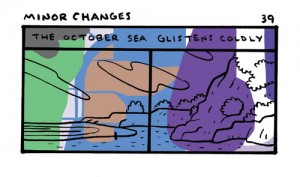
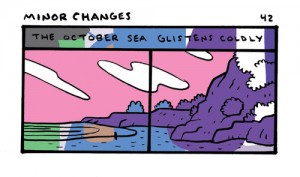
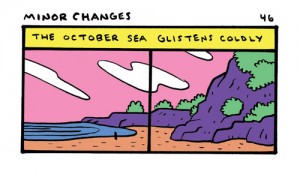
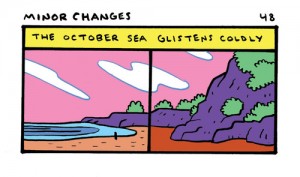
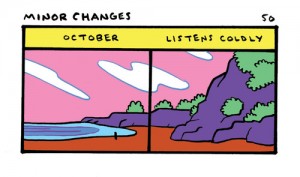
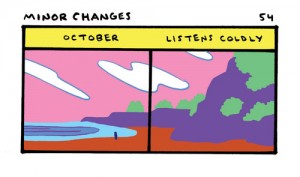
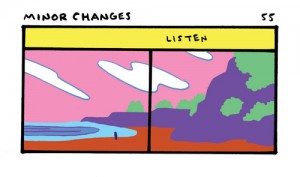
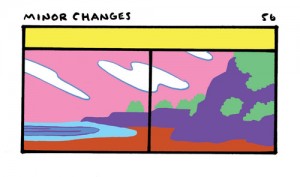
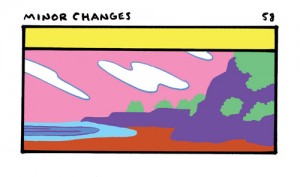
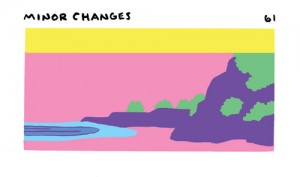
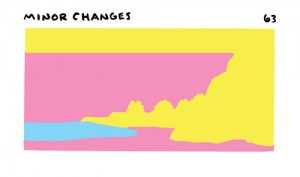
 D5 Creation
D5 Creation